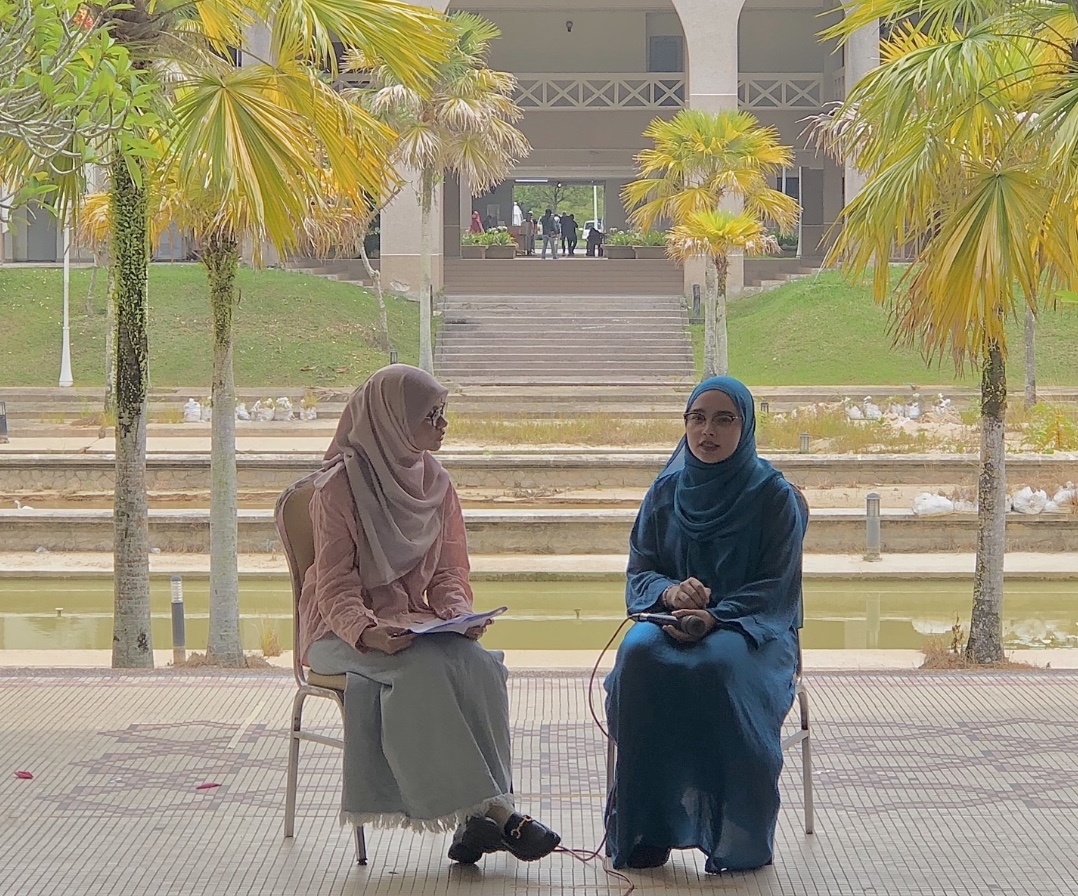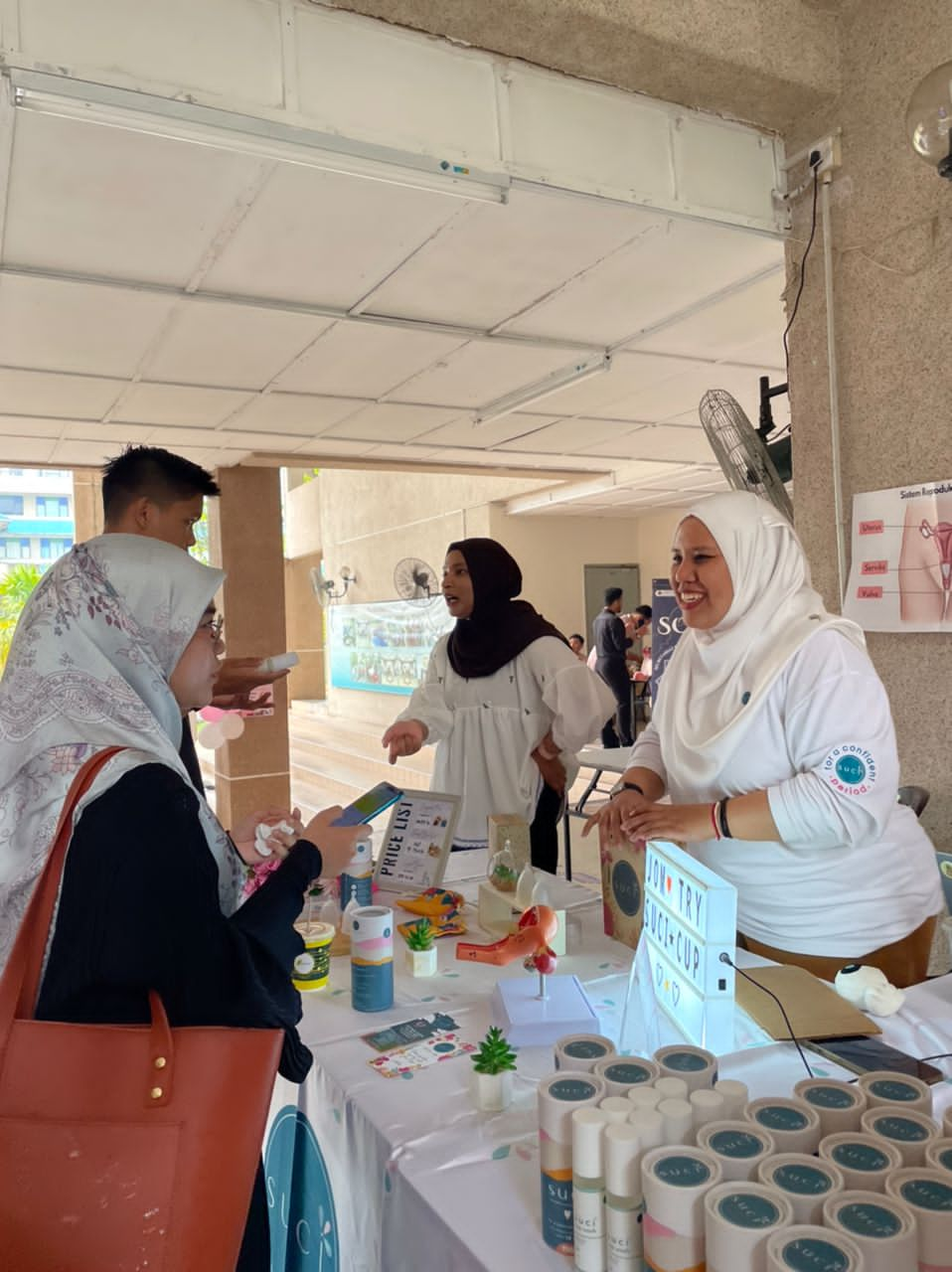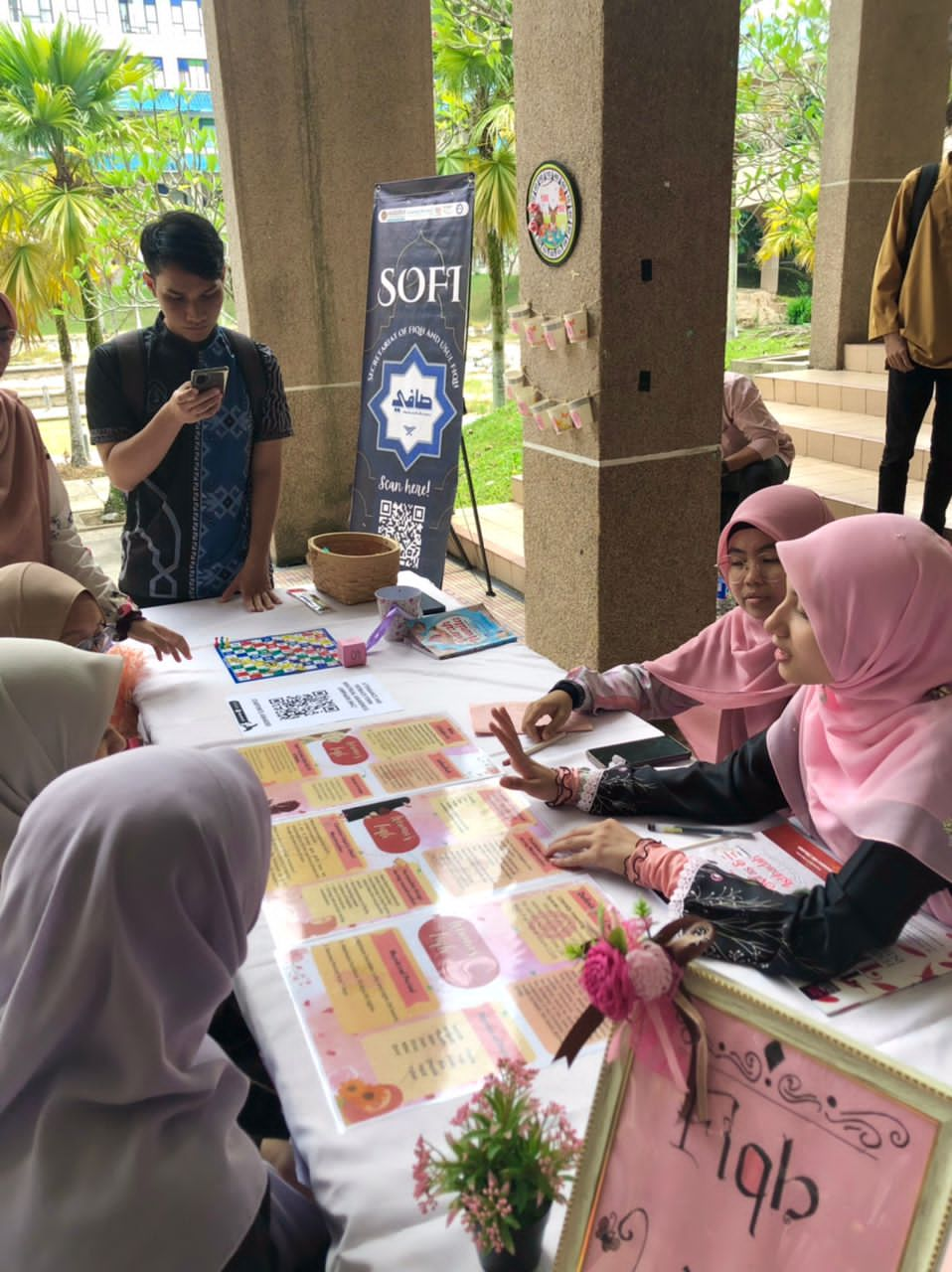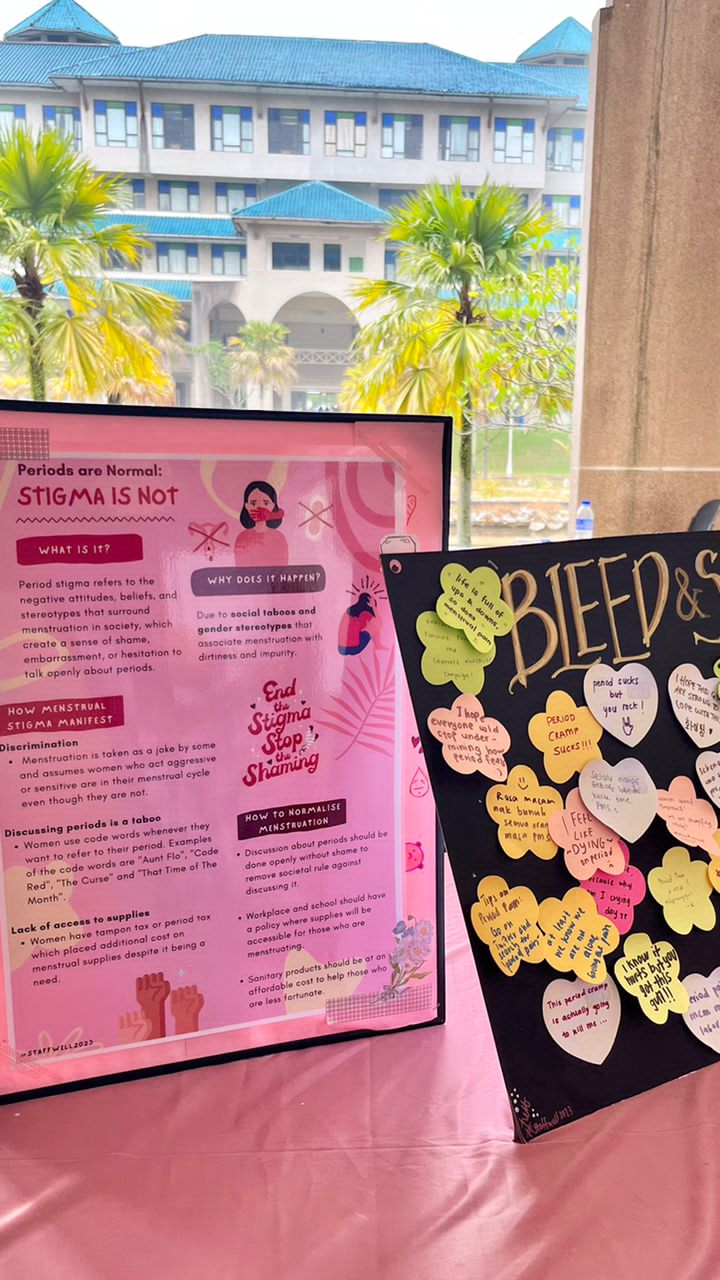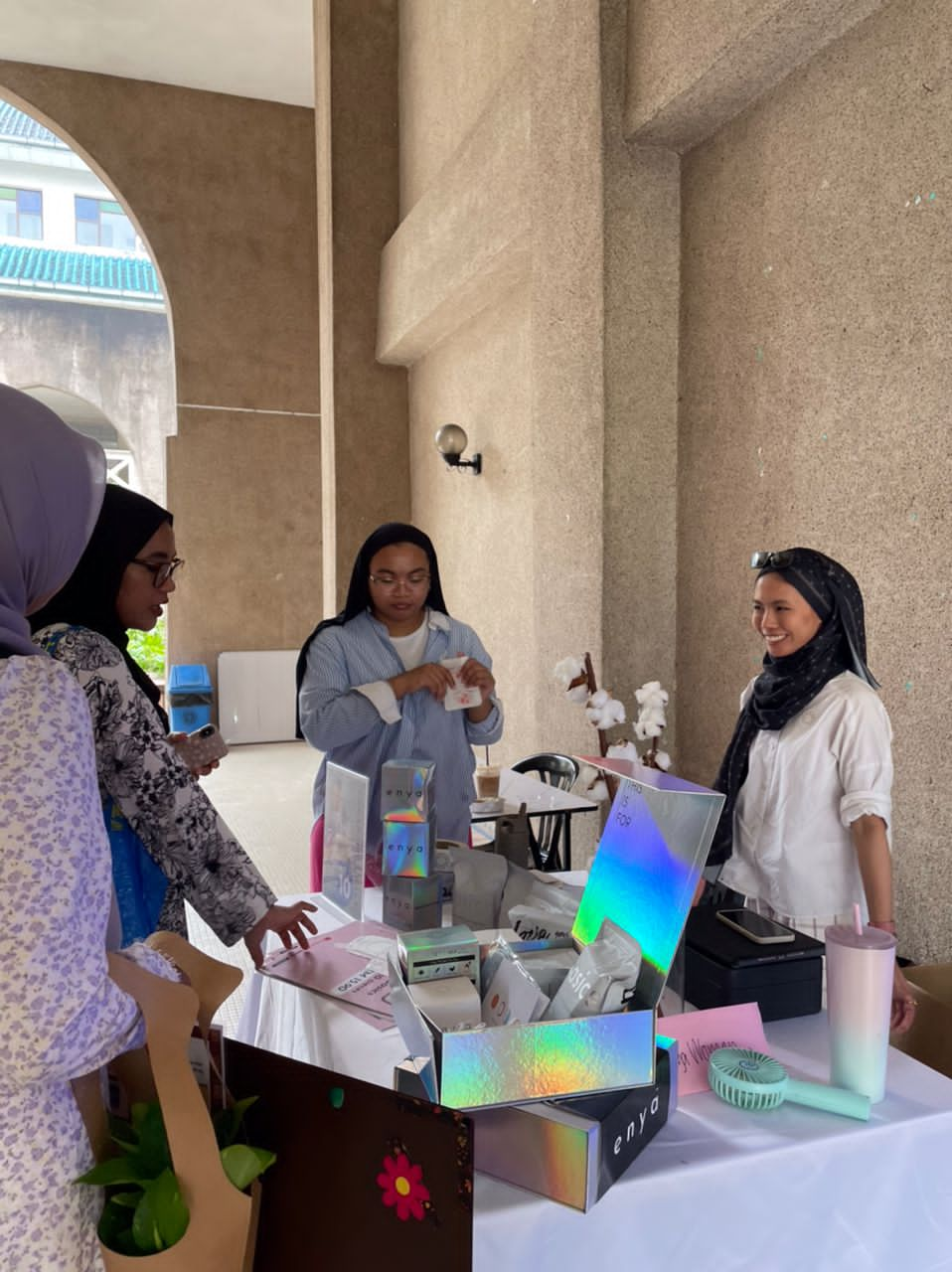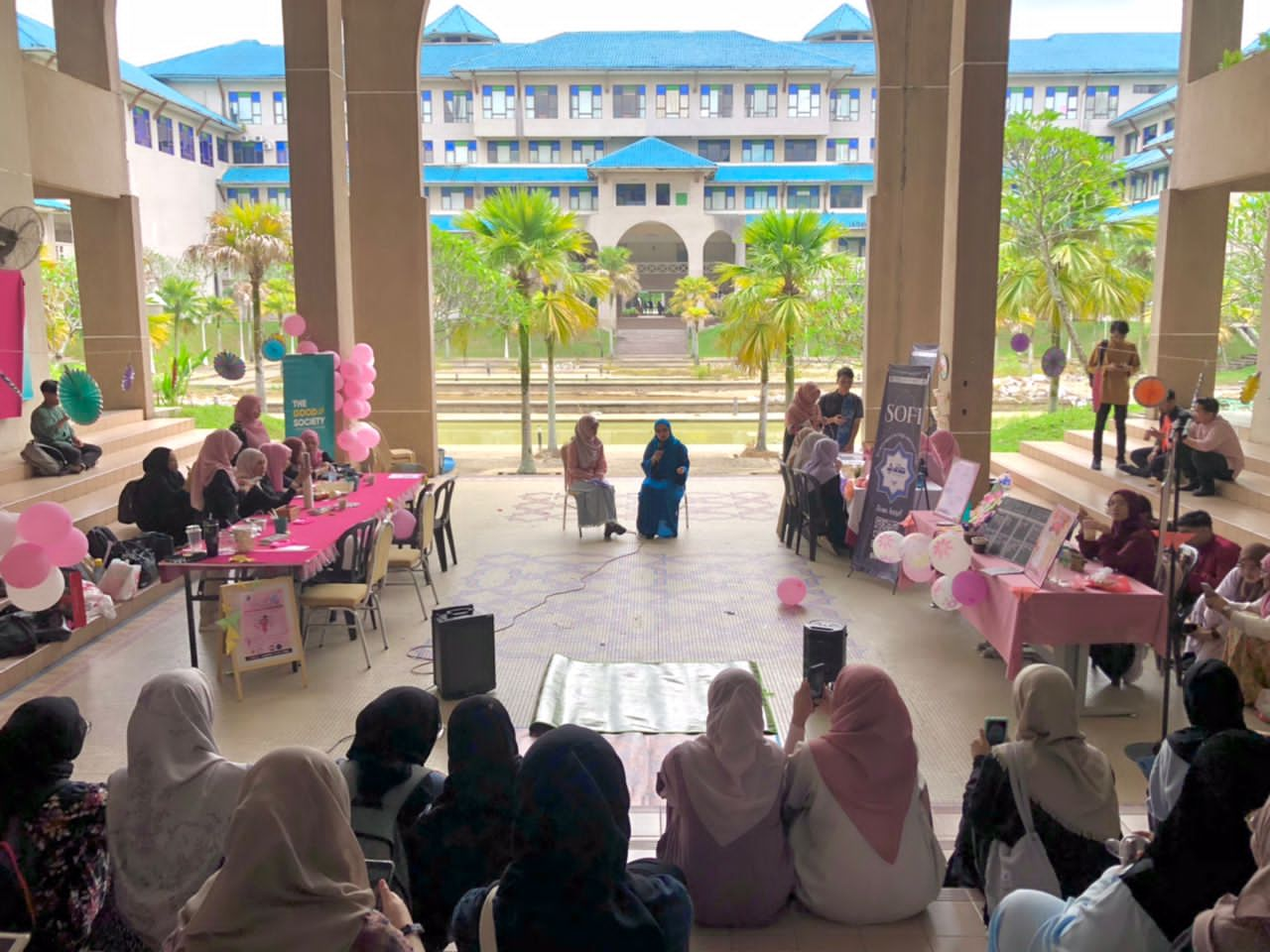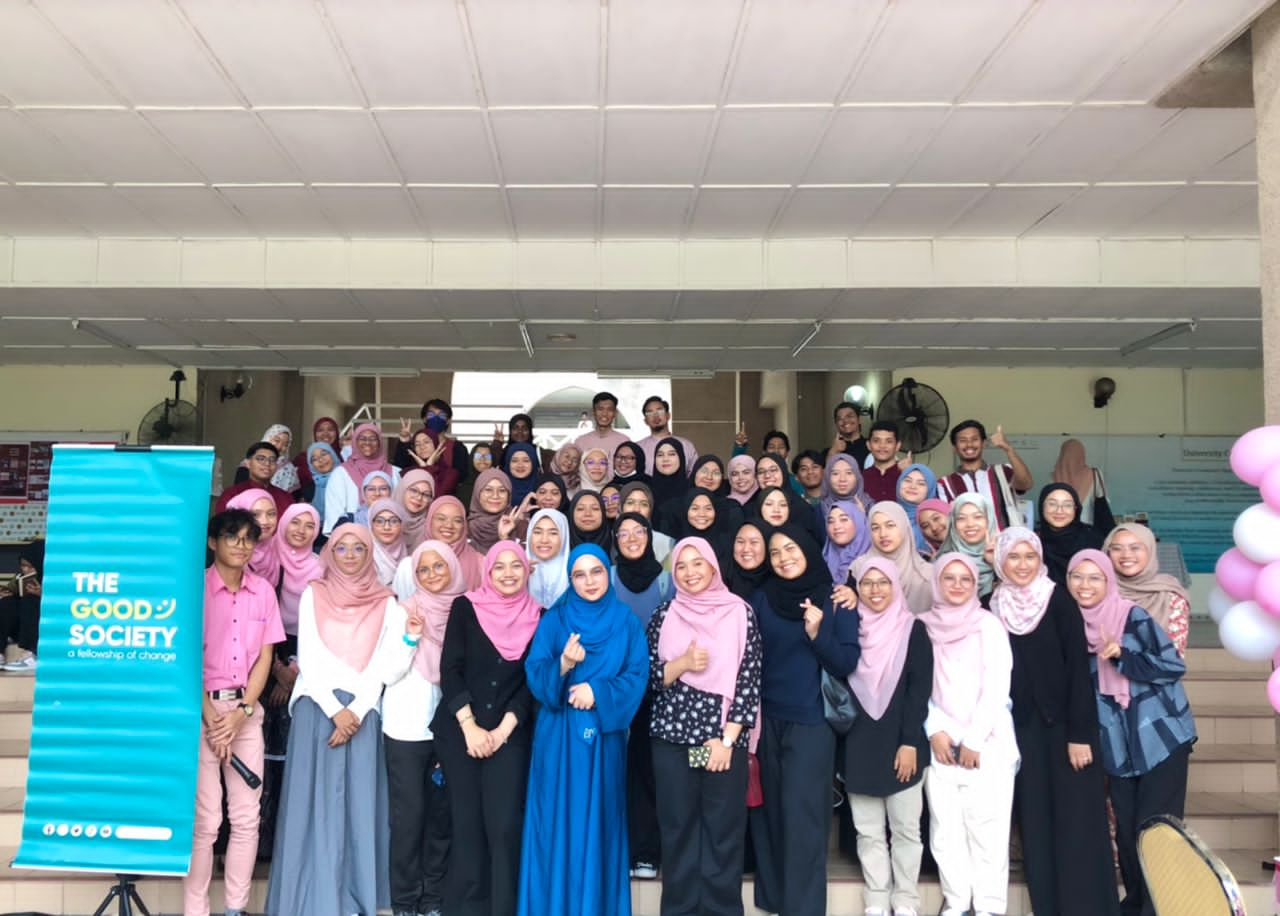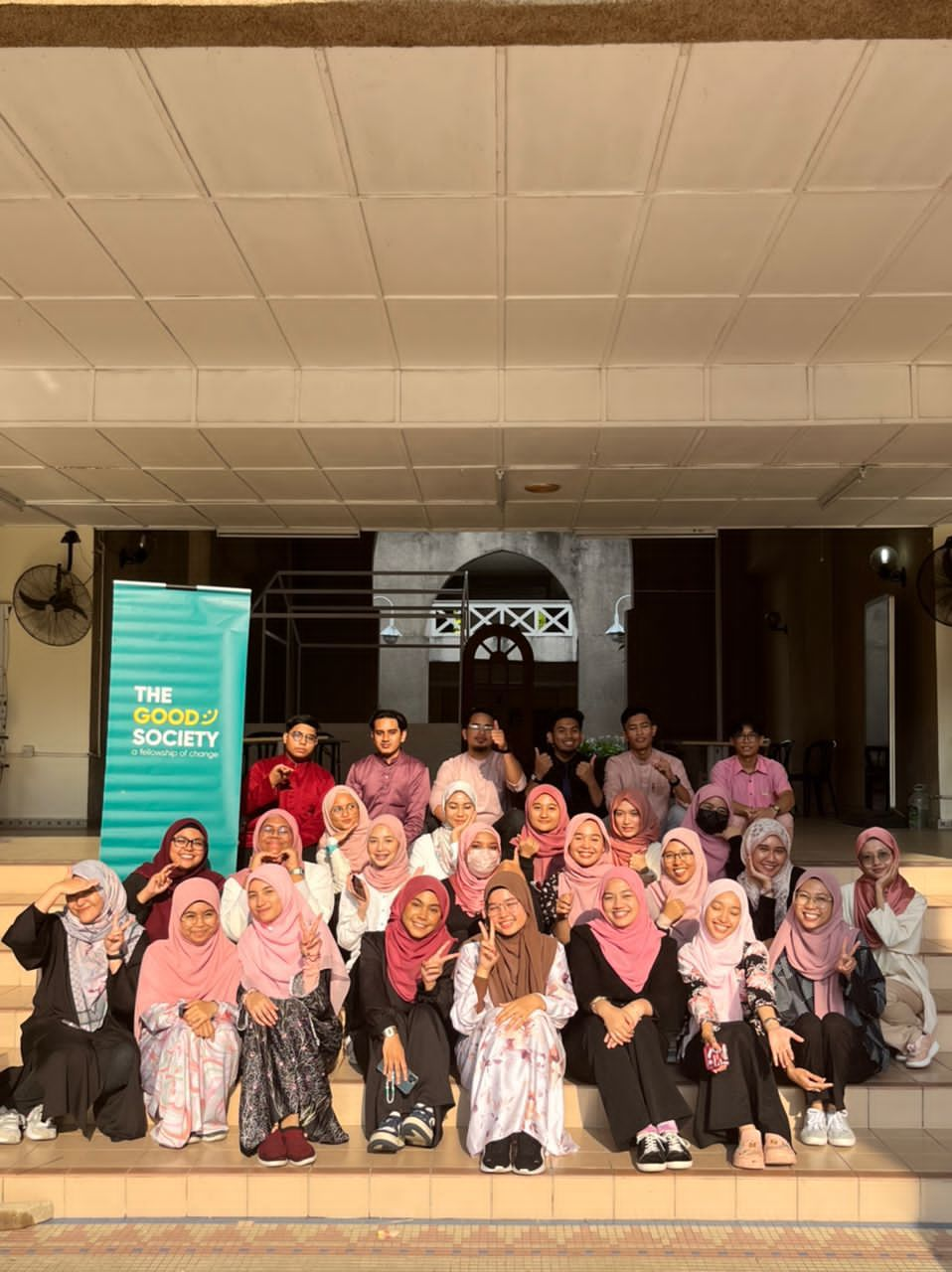By Naqibah Abdullah
GOMBAK, 7 June 2023: Period poverty refers to the lack of access to menstrual products and hygiene facilities, and continues to be a pressing issue affecting all women and girls mentioned Peduli Merah Advocate, Dr. Sharifah Fatimah Alzahrah binti Syed Hussein in a talk last week (1 June).
The event was organized by the Women Division of The Good Society IIUM also known as EmpowHer and it is in collaboration with the Secretariat of Psychology (PSYCSTA) IIUM and the Secretariat of Fiqh and Usul Fiqh (SOFI) IIUM.
Intended in raising awareness among the public and inspiring others to share the information widely, thus promoting knowledge dissemination, the talk which was part of the Menstrual Awareness Campaign 2023 took place at the Human Sciences Square in IIUM Gombak.
Dr. Fatimah, who is also a lecturer in the Department of Sociology, IIUM, explained further the definition of period poverty and answered some of the questions related to menstruation.
œWhen talking about the definition of period poverty, people always mistaken it by focusing on menstrual products but the actual meaning of it is the inability for menstruating women to manage their menstruation properly, in a healthy way, said Dr. Fatimah.
There are several aspects that are relevant to the definition of period poverty specified by Dr. Fatimah:
- enhancing education and knowledge acquisition regarding menstrual health;
- ensuring access to a variety of menstrual products;
- guaranteeing access to proper facilities and sanitation;
- facilitating access to medical care and attention; and,
- addressing discrimination based on menstruation.
She also emphasized that we must understand the bodily changes from the onset of menstruation to menopause. It is crucial for girls to be equipped with the knowledge of what to expect and the transformations their bodies will undergo.
Nevertheless, she still encouraged individuals to seek medical advice if they were to experience abnormal symptoms, such as prolonged bleeding, and to address any concerns or issues related to their menstrual health.
According to her, the stigmatization surrounding menstruation further compounds the problem. Societal taboos and cultural norms often silence discussions about periods, reinforcing the shame and embarrassment associated with menstruation.
She added that it also includes combatting discrimination that excludes menstruating individuals from participating certain activities and challenging stigmas and misconceptions associated with menstruation.
Dr. Fatimah concluded that the problem of period poverty encompasses more than just the lack of access to sanitary pads or products, and there are multiple factors to consider and delve into.
In addition to Dr. Fatimah’s talk, the event featured several booths from different organizations aimed at educating students and participants about periods and reducing the associated stigma. These booths included:
- EmpowHer: They had a booth where attendees could engage in an activity involving painting to destigmatize period blood.
- PSYCSTA IIUM: They focused on mental and psychological health during menstruation at their booth.
- SOFI IIUM: Their booth provided information on the fiqh (Islamic jurisprudence) and fatwa (religious rulings) related to menstruation.
- Peduli Merah: They advocated for addressing period poverty at their booth.
- Suci Cups: Their booth focused on educating and promoting the use of menstrual cups.
- Enya Women: They had a booth dedicated to educating and promoting the use of organic menstrual pads.
The talk was followed by a Question-and-Answer (QnA) session with the students and a photography session. ***
